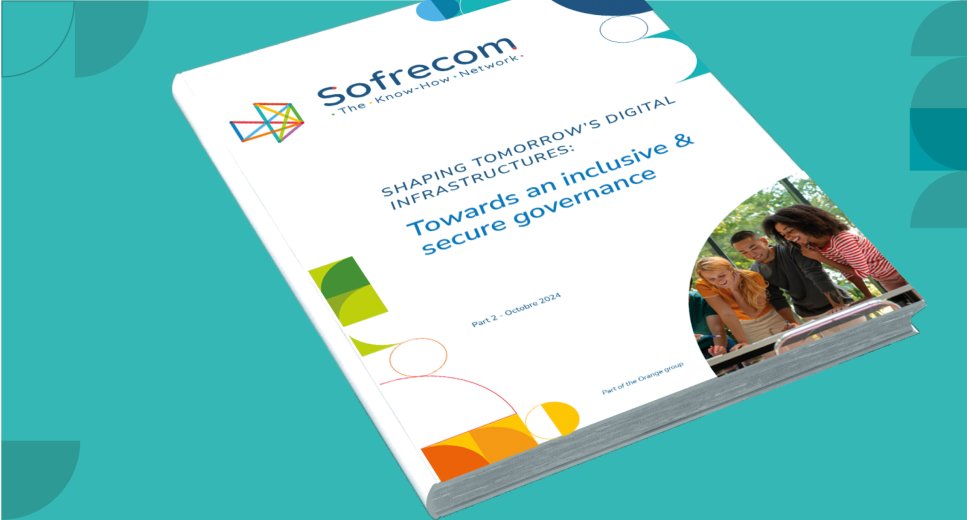In a context of accelerating digital transformation of the economy and growing usage, the environmental impact of digital technology is generating strong societal awareness, calling for political responses

French legislation mandates local authorities to implement a responsible digital strategy by 2025. This initiative not only addresses the ecological transition challenges faced by territories but also accelerates the sustainable transformation of the public sector. Orange Consulting supports local authorities on this path.
Until 2022, CSR (Corporate Social Responsibility) had a limited role in the digital transformation strategies of French local authorities. Discussions were primarily focused on technology and user experience. The evaluation of digital investment projects was based on three criteria: improving user service, aligning with the state’s strategic framework, and economic profitability. Now, all local authorities with more than 50,000 inhabitants are encouraged to prioritize responsible digitalization in their projects from the planning phase to the monitoring of indicators.
A growing ecological awareness
Two major catalysts drive this evolution:
- As digital transformation of the economy accelerates and usage grows, the environmental impact of digital technology is gaining strong societal awareness, prompting political responses.
- To align digital and ecological transitions, the French government enacted the REEN law to decarbonize and reduce the energy consumption of territories. Public actors are expected to promote more sustainable and thoughtful digital practices through a responsible digital strategy roadmap.
What Does the REEN Law (Reduction of the Environmental Footprint of Digital Technology) Entail?
The REEN law, passed on November 15, 2021, targets all players in the digital value chain in France, including professionals, public actors, and consumers. It stipulates that all EPCI (public intercommunal cooperation establishments) with more than 50,000 inhabitants must establish a responsible digital strategy roadmap by January 1, 2025, as detailed in a decree published on July 29, 2022.
The REEN law focuses on four objectives:
- Raising awareness of the environmental impact of digital technology.
- Reducing the turnover of digital devices by extending their lifespan, promoting reuse and recycling, and setting circular economy goals.
- Encouraging eco-responsible digital practices.
- Promoting less energy-intensive data centers and networks, and sharing infrastructure.
Public administrations face difficulties in grasping environmental issues
While ecological awareness is on the rise, up until now, local and regional administrations have not really grasped the importance of the environmental issue. A 2022 study by Orange Consulting, in partnership with IFOP for Acteurs public solutions, revealed several barriers:
- Competing priorities (energy and water security, public safety, food sovereignty, data sovereignty)
- Lack of maturity and leadership within the public sector on carbon issues and energy transition
- Insufficient expertise to address carbon evaluation.
Responsible digitalization is not yet a priority for many elected officials. However, the study identified two emerging concerns among local authorities:
- Inclusion: How to prevent widening the digital divide, considering issues related to democracy, citizen engagement, and professional integration.
- Ethics: The deployment of AI and data-based tools raises ethical questions.
Given these diverse challenges (carbon, energy transition, data, and AI), local authorities often feel unprepared.
Driving change is needed to make digital responsibility a reality
To embrace responsible digitalization, frame and secure their projects to reduce the environmental impact of their equipment (IT, data centers, computing, mobile fleets etc.), and establish a clear roadmap, elected officials and CIOs require expert guidance in their decision-making.
Two main areas of support are of particularly strategic value:
- Training buyers to implement responsible sourcing: Indeed, 80% of the digital industry's carbon footprint is linked to the manufacture of equipment. Buyers need to integrate criteria other than the single variable of price, learn more about the various eco-responsible labels and engage in a new dialogue with their suppliers, based on partnership. To make efficient choices, they will have to consider the entire life cycle of equipment and contribute increasingly actively to the circularity of this equipment to extend its lifespan. Orange has been committed to this approach for several years, through its OSCAR circular economy program, which encourages the reuse of reconditioned network equipment within the Group, thereby limiting the production of new equipment. Circularity is a particularly important issue for public-sector players, as the equipment they purchase is made available to schoolchildren, who need to be able to benefit from operational terminals.
- Increasing employee and company awareness: A wide range of audiences (employees, schools, associations, the local economic fabric, citizens, etc.) are directly concerned by the major challenges of responsible digital, for two reasons: behind every PC and every terminal, there is a human being; the uses of each of these individuals are decisive in achieving the region's decarbonization objectives, because 55% of digital technology's energy consumption comes from usage. Digital technology will become truly responsible when individuals take responsibility for their equipment. One of the major challenges for local authorities is therefore to support the change in mentality, to encourage people to adopt new practices and new reflexes. It's a very long process of awareness-raising and acculturation.
Leveraging responsible digitalization for territorial ecological transition
The analysis of the Territorial Climate-Air-Energy Plans (PCAET) has revealed the minimal consideration given to digital technology for driving, or at least monitoring, the strategic projects of the territory. For example, an analysis of a 300-page PCAET document from a local authority revealed only 27 occurrences of words related to digital technology.
As we move towards responsible digitalization, which promises to create smart territories and enhance the monitoring of increasingly scarce resources like water and energy, as well as future biodiversity issues, it is crucial to address this "blind spot." Investigating this area will help ensure that responsible digitalization increases the accountability of local authorities.
In the next four-to-five years, responsible digitalization will extend beyond France and Europe. Since it is easier to integrate responsible digital practices and extend equipment lifespans in less mature digital environments, responsible digitalization could present real opportunities for MEA (Middle East and Africa) countries to develop sustainable models distinct from those in Europe.






